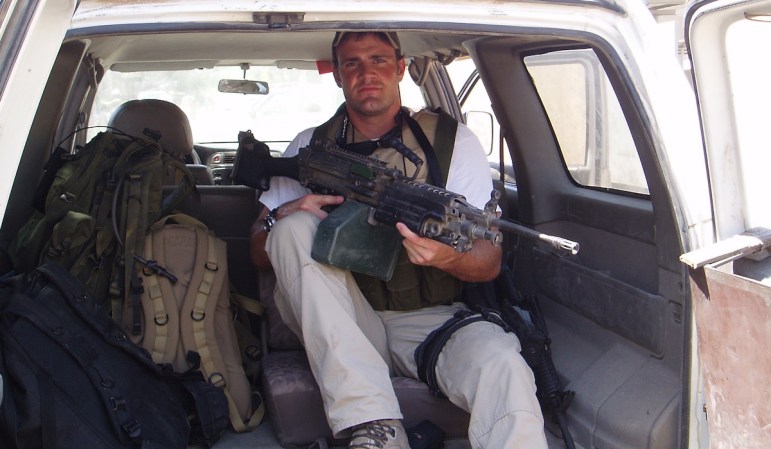The most interesting thing about pleading guilty to a capital crime in a military court is the defendant needs to be able to convince the presiding judge that he or she is actually guilty of the crime, and not just taking the deal to avoid the death penalty. Another interesting tidbit is that defense lawyers can only allow the defendant to make such a plea if they truly believe he or she is guilty.
So when Staff Sgt. Alberto Martinez offered to plead guilty to avoid the death penalty for murdering two of his officers in Iraq, you’d think that would be a gift to the prosecution. You’d think that, you really would.

Lt. Allen left behind four children with his wife.
Martinez convinced his lawyers of his guilt and offered to plead guilty to premeditated murder, convince the judge, and avoid the death penalty. He was willing to testify that he threw a claymore mine into the window of a CHU occupied by his commanding officers, Capt. Phillip T. Esposito and First Lt. Louis E. Allen on a U.S. military base near Tikrit, Iraq in 2005.
The claymore exploded and tore the two sleeping officers to shreds, as it was designed to do. It was the first fragging accusation of the Global War on Terror. Witnesses told the 14-member jury that Esposito derided Martinez for his lax operation of the unit’s supply room. Another witness testified that she had delivered the murder weapon to Martinez a month prior. Another witness said Martinez simply watched the explosion happen, unconcerned about a follow-on attack. It was a well-known fact that Martinez and Esposito did not get along.

A temporary memorial for US Army officers Phillip Esposito and Louis Allen erected in Tikrit, Iraq in June 2005 after both officers were killed in an alleged fragging incident at Forward Operating Base Danger on June 7, 2005.
(US Army)
Martinez was arrested and transferred to Fort Bragg for trial. A New York Times investigation revealed that Martinez offered the guilty plea two full years before his trial ever took place – but the offer was rejected by the prosecution, who wanted to send Martinez to death row.
“This offer to plea originated with me,” Martinez wrote in the plea offer. “No person has made any attempt to force or coerce me into making this offer.”
If the defense offered it to the prosecution, it means they truly believed their client was guilty, as per Army regulations. Then Martinez would have to convince the judge of his guilt. The judge could then accept or reject the plea. Martinez never made it to the judge. The Army took it to trial and lost their case against Martinez in just six weeks.

Esposito with his daughter Madeline before deploying in 2005.
The defense argued that all the evidence and witness accounts were purely circumstantial and since no one took receipt of the claymores, which was usual for the Army then, it can’t be proven that Martinez had access to them or even knew the rarely-used mines were available.
Martinez was cleared of the charges, released from prison, and honorably discharged from the Army. He died in January 2017 of unknown causes, and no charges have ever been filed for the deaths of Capt. Esposito and Lt. Allen.


























